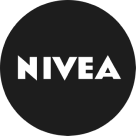“Boolean operators are simple words (AND, OR, NOT or AND NOT) used as conjunctions to combine or exclude keywords in a search, resulting in more focused and productive results.” Alliant Libraries
This is the reason why in Determ we use Boolean operators.
For most users, it’s the first time using them which can make it hard to understand the difference between AND and OR operator; let alone the NEAR or AT-LEAST operators.
To make setting up queries less stressful in this blog we’ll cover all the important information about Boolean operators and how to use them.
Understanding how Boolean operators work
We created this infographic with the most used ones to best illustrate how Boolean operators work.

Also, you can find descriptions of every Boolean operator in the query setup.

Why use Boolean operators?
Now that we learned what Boolean operators are, here are a couple of reasons why you should start using them:
- Collecting all forms of your keywords
- Creating a context for more precise search
- Avoiding mention limit breach
Collecting all forms of your keywords
If you want your reports to be more relevant and actionable, your mentions should be relevant as well.
If your queries are not properly set up, chances are your feed will be full of mentions that don’t mean anything to you and won’t provide you with a realistic overview of your company’s position.
In this case, setting up Boolean operators will depend on the keyword’s language, whether you’re using abbreviations or not, etc.
For example, the Croatian language is quite tricky to track because of its grammar, while English is one of the easiest.
To make sure your search is covering all of the keyword variations, you can use some of the Boolean operators such as:
- asterisk (*) to track different variations of the same word
- question mark (?) to get mentions of all the posts that (might) contain exactly one letter more than your keyword
- a full stop (.) to find variations of meaningful words with different letters
- case sensitive (/CS) to make sure you get mentions with capitalized letters
Creating a context for more precise search
Another way to get more relevant data is to narrow down your search.
For example, if you want to receive mentions of your company only in the context of the latest campaign you launched, Boolean operators can make that happen.
In this case, you can use operators such as:
- AND to find only results which contain all the relevant terms
- OR to broaden the search and find any of the entered keywords
- NEAR/ to track only mentions in which Keyword 2 appears a specified (N) number of words after Keyword 1
- Quotation marks (“ “ ) to track the whole phrase inside the quotation marks
- AND NOT to exclude specific keywords (keep in mind that the tool will display an error if you write only “NOT” since the operator full phrase is “AND NOT”)
- OCCURS/2 to set a number of times a specific keyword has to be mentioned in the article
Avoiding mention limit breach
Boolean operators can help you avoid your mention limit.
Since each plan has a set number of mentions you can receive, narrowing down your search can help you avoid breaching the limit and get only relevant results.
If you’ve properly optimized your queries, but still go over your mention limit, you should consider upgrading your plan.
Additional tips
Boolean operators are only one of the ways you can set up or optimize your queries. In addition to using Boolean operators, you can also filter your results by global filters, and sources.
To further optimize your query, you can also filter your results by using global filters and sources.
Global filters consist of:
- Language
- Location
- Authors
- Influence score
- Sentiment
Here, we’ll only focus on the first two.
When it comes to language and location filters, more often than not it’s enough to use only one of them.
We suggest that you use the Location filter for more narrow results since different languages can be used no matter the location (for example, English is used everywhere on social media).
Example of a query setup with Boolean operators
Here’ an example of a query setup using Boolean operators for Apple event.
Keep in mind that this is a simplified version of the query setup with Boolean operators, and it serves as an illustration.
So, why did we set up a query like this?
We wanted to track mentions about Apple event and new products and services they revealed. That’s why we choose the NEAR/ operator, which allowed us to narrow down the search and really focus on the mentions about the event.
Also, we used the AND operator to narrow down the search even more and focus only on mentions about the products and services that were mentioned in the event.
Furthermore, we wanted to collect only mentions that spelled iPad correctly, so we use a case sensitive /CS operator, and mentions containing full names of Apple services such as “Apple One” and “Apple Fitness+”. Hence the quotation marks (“ “) operator.
Finally, since “apple” is also the name of a fruit, we had to tell the tool not to look for mentions that could be connected to the fruit. That’s why we choose the AND NOT operator with words that often come with apples (the fruit) such as pie, tree, and fruit.
What should be avoided when setting up queries?
To sum up, here are some of the things you should avoid in order for your results to be relevant and actionable:
- Using generic words without context
- Using only one form of keyword
- Excluding locations
Keep in mind that no explanation works as good as testing Boolean out for yourself.



